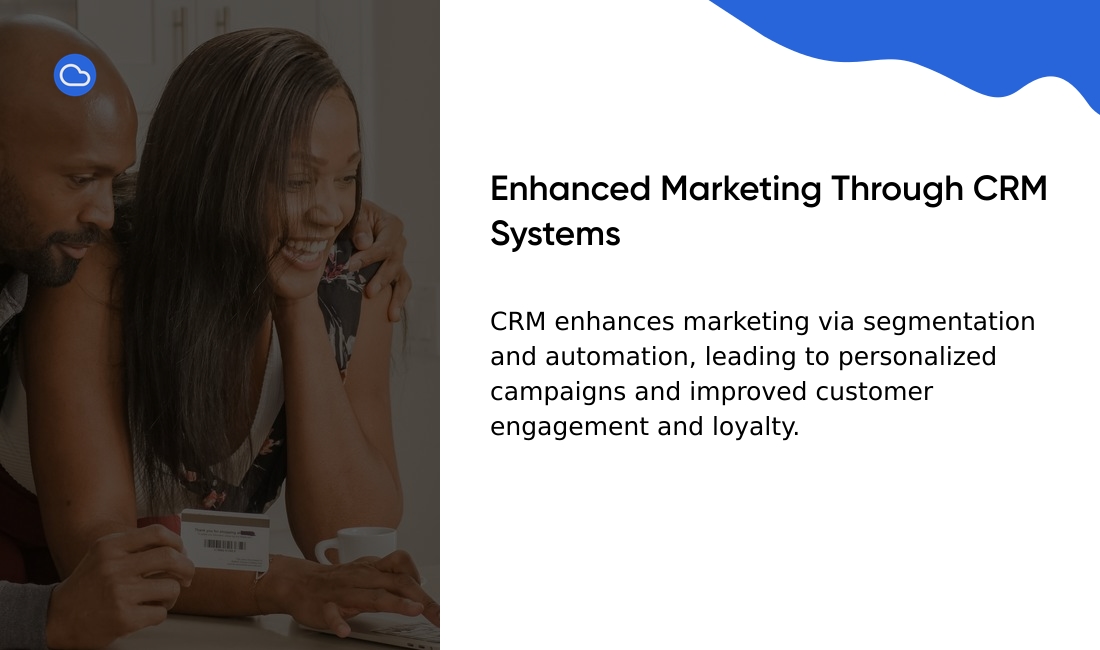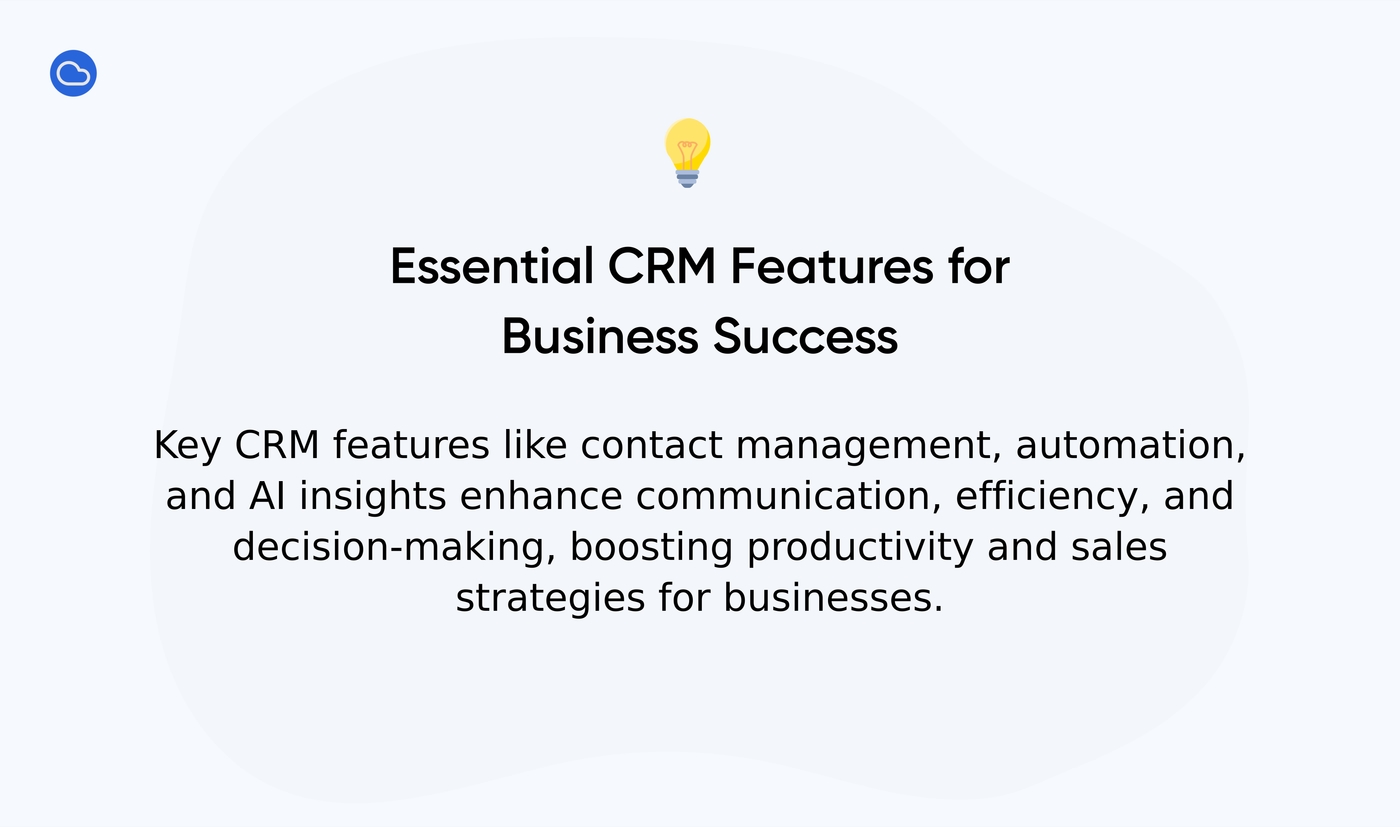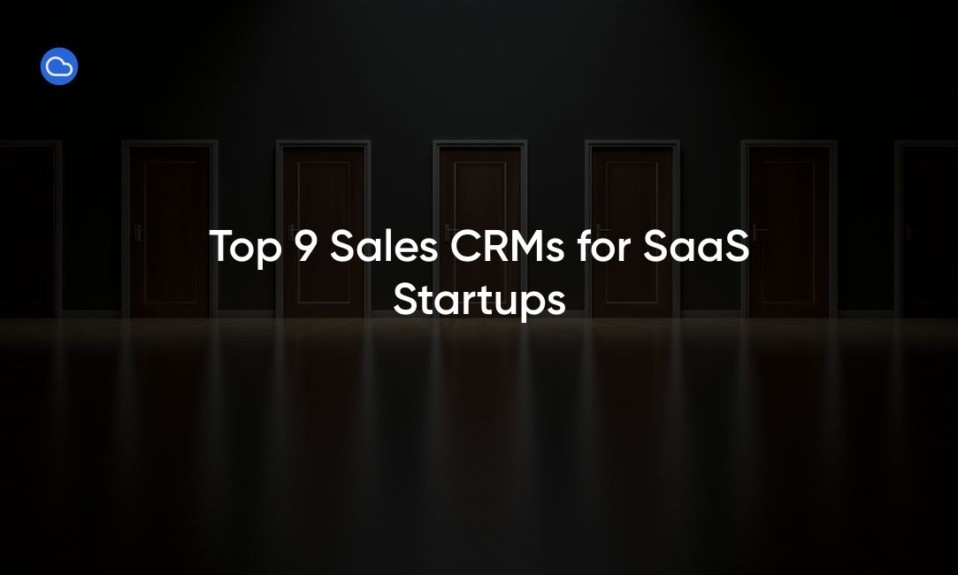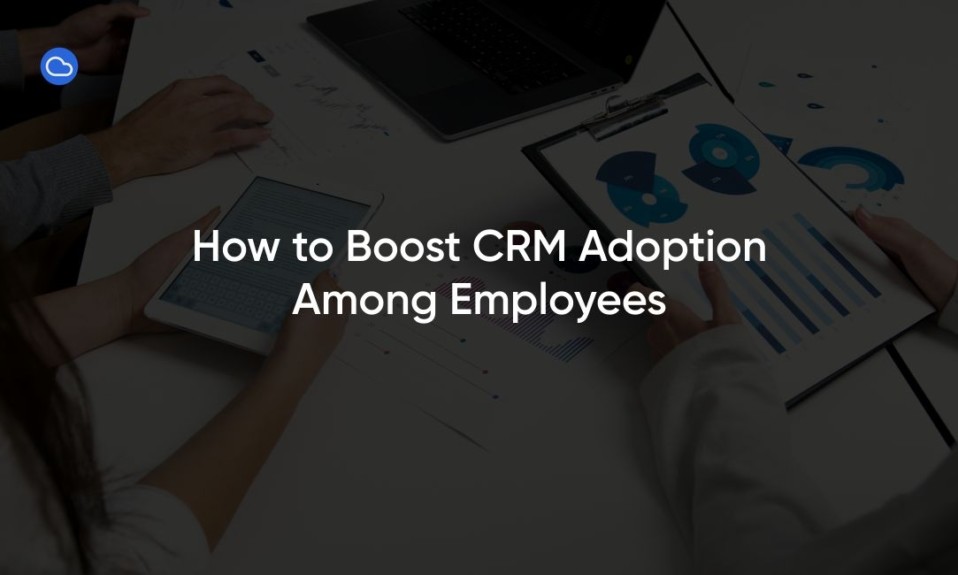Businesses that can’t track customer interactions often miss crucial opportunities (and let’s be honest, nobody wants that).
Scattered data and disconnected teams lead to frustrated customers, wasted marketing spend, and overlooked sales—problems that compound as companies grow.
CRM benefits start with solving these operational headaches by centralizing every customer touchpoint into one actionable system.
You’ll discover how CRM software boosts sales conversion rates by up to 300% while cutting redundant tasks by half, according to recent industry analysis.
We’ll break down why 91% of businesses with 11+ employees now use CRM tools, exploring everything from marketing ROI boosts to small business survival strategies.
By the end, you’ll understand exactly how CRM systems create competitive advantages—whether you’re scaling a startup or optimizing enterprise workflows.
What are the benefits of CRM systems?
Enhanced customer relationships and retention
CRM systems transform how you view your customers. They create a 360-degree view of each individual, gathering data from various touchpoints. This comprehensive understanding allows for personalized interactions.
For example, businesses can use these insights to tailor their marketing messages based on previous purchases or support interactions. When a customer calls with an issue, the support agent already knows their history—no frustrating repetition needed!
When customers receive personalized experiences tailored to their needs, they feel valued. This perception fosters loyalty. Have you noticed how much more likely you are to stick with brands that remember your preferences?
Studies indicate that organizations utilizing CRM tools experience a notable enhancement in retention rates—often seeing improvements of 25-30% compared to those without integrated customer data.
-
Comprehensive customer profiles
-
Personalized communication
-
Improved response times
-
Consistent service across channels
By integrating a CRM system, companies not only nurture these relationships but also create a pathway for customers to feel more engaged with their brand.
Increased sales and revenue growth
CRM implementation can significantly enhance your sales effectiveness. Companies that adopt these systems often experience a boost in sales productivity of about 15%. This increase isn’t just a small uptick; it can turn into an impressive rise in conversion rates, sometimes hitting up to 300%.
Evidence supports this shift. For every dollar invested in CRM, businesses can expect an average return of $8.71. That kind of return is hard to ignore! Plus, with AI-enhanced CRM tools now available, some organizations are achieving ROI as high as 245%.
Here’s the thing—modern CRM systems don’t just track contacts. They provide actionable insights that help sales teams:
-
Identify high-value prospects
-
Prioritize leads most likely to convert
-
Follow up at optimal times
-
Cross-sell based on purchase history
Utilizing CRM solutions truly transforms how teams approach sales, refining methods and targeting efforts based on solid data rather than guesswork.
For detailed statistics on CRM impact, check out the insights on CRM statistics.
Improved team collaboration and productivity
Centralized customer data transforms how departments coordinate. When everyone accesses the same information, those painful communication gaps disappear. Sales knows what marketing promised, and support understands the customer’s purchase history.
Automating workflows reduces repetitive tasks, enhancing efficiency. Workflow automation can cut administrative busywork by up to 50%, freeing your team to focus on what humans do best—building relationships and solving complex problems.
When teams access consistent, up-to-date information, communication flows seamlessly. For instance, sales and marketing departments align their efforts, targeting the right customers at the right time.
|
Department |
CRM Benefit |
Impact |
|---|---|---|
|
Sales |
Automated lead scoring |
27% faster sales cycles |
|
Marketing |
Campaign tracking |
Improved ROI measurement |
|
Customer Service |
Complete interaction history |
30% faster issue resolution |
|
Management |
Performance dashboards |
Data-driven decision making |
Companies report operational efficiency increases of up to 50% by eliminating unnecessary redundancies. You know those endless email chains asking “Who last spoke to this client?” That headache vanishes with proper CRM implementation.
Data-driven decision making
The rise of modern CRM systems has truly transformed how businesses approach decision-making. These platforms offer powerful analytical capabilities that turn raw data into strategic gold.
You gain access to actionable insights through comprehensive reporting, accurate forecasting, and detailed customer behavior tracking. Gone are the days of making business decisions based on hunches or limited information.
Tracking customer interactions can reveal patterns that guide future campaigns and product development. For example, if your CRM shows that prospects who download a specific whitepaper have a 75% higher conversion rate, you can prioritize promoting that content.
This data-driven approach not only supports strategic planning but also minimizes risks associated with uncertainty. Wouldn’t you rather make decisions based on clear evidence instead of guesswork?
With AI integration now standard in leading CRM platforms, predictive analytics can identify trends before they become obvious, giving you a competitive edge. Actually, by 2025, about 50% of CRM implementations are expected to include AI components.
Streamlined marketing campaigns
CRM systems significantly enhance your marketing efforts through segmentation and automation. You can slice and dice your contact database to create highly targeted campaigns that speak directly to specific needs and pain points.
You can tailor your messages to specific audience groups, leading to higher engagement rates. Instead of blasting everyone with the same generic email, you might send product updates only to active users, re-engagement offers to dormant accounts, and educational content to new subscribers.
Personalized marketing makes customers feel valued, and that connection encourages loyalty. In fact, CRM data shows that personalized emails deliver 6x higher transaction rates compared to generic messages.
Performance tracking remains vital. With CRM tools, you can measure the effectiveness of your campaigns in real-time. Understanding what works and what doesn’t allows for quick adjustments, maximizing your marketing ROI.
Social CRM integration now allows brands to track feedback and sentiment across platforms like Facebook and LinkedIn, creating a comprehensive picture of your brand’s online presence.

How does CRM benefit different business sizes?
CRM benefits for small businesses
Small businesses face unique challenges when competing against larger corporations. Leveraging a CRM system can level the playing field and foster meaningful connections with customers. With affordable cloud-based solutions, small businesses can access tools once available only to giants.
Enhanced customer service stands out as a significant CRM advantage. By creating a detailed view of your customers, you can respond to their needs quickly and effectively. This personalized approach can lead to higher satisfaction rates and increased loyalty.
Take a local boutique clothing store as an example. With a simple CRM, they can track customer preferences, purchase history, and birthdays. When a customer walks in, the staff immediately knows their size and style preferences—creating that “they remember me!” feeling that builds lasting relationships.
Efficient resource allocation also plays a vital role. CRM software allows small businesses to streamline processes, enabling you to focus on what matters most. Instead of juggling multiple tasks, you can centralize customer interactions and insights in one place, improving overall productivity.
Small companies that embrace CRM technology gain a competitive edge. It’s about making smarter decisions that result in sustained growth and thriving relationships. And with mobile CRM options improving on-site productivity by 50%, even businesses with field teams can stay connected.
Mid-market company advantages
Growing organizations enjoy unique benefits that can significantly impact success. Scalability stands out as a key factor. With CRM systems, mid-market companies can adapt their processes as their customer base grows from hundreds to thousands without hiring proportionally more staff.
Process standardization plays an important role in ensuring smooth operations. By implementing consistent procedures across various departments, you enhance productivity and reduce errors. This standardization not only streamlines workflows but also frees up resources for more strategic initiatives.
Mid-sized businesses often struggle with the “growing pains” of transitioning from a small, tight-knit operation to a more structured organization. CRM provides the framework to maintain quality while expanding reach.
Maintaining a personalized touch remains possible even while expanding a customer base. Implementing CRM allows for tailored communications and services, ensuring each customer feels valued. You build relationships that last, which is crucial for long-term growth.
The beauty of modern CRM for mid-market companies is the balance of power and affordability. You get enterprise-grade features without the enterprise-grade price tag, allowing you to compete with larger players in your industry.
Enterprise-level CRM benefits
Large organizations navigate complex sales cycles and diverse customer engagement channels with advanced CRM capabilities. These systems offer a 360-degree view of customer interactions, which plays a vital role in enhancing relationships across multiple business units and geographies.
We often observe that businesses using CRM effectively see improved collaboration among global teams. Centralized data ensures that members across departments have the same information, reducing redundancy and preventing the “left hand not knowing what the right is doing” syndrome that plagues many large organizations.
For enterprises, CRM systems excel at managing complex approval workflows and maintaining regulatory compliance—crucial factors in industries like finance, healthcare, and manufacturing.
Analyzing comprehensive analytics empowers organizations to drive growth. With proper CRM utilization, companies can track crucial metrics, enabling data-driven decisions that boost sales and revenue.
Enterprise CRMs now integrate with existing tech ecosystems, connecting with ERP systems, marketing automation platforms, and business intelligence tools to create a seamless operational environment. This integration capability is why the global CRM market is projected to reach between $101.41B and $262.74B by 2032.
Industry-specific CRM advantages
Different sectors enjoy unique CRM software benefits, tailoring solutions to their specific needs. Retailers utilize CRM to enhance customer experience, managing loyalty programs effectively and tracking preferences. A clothing retailer might track seasonal purchases to recommend appropriate items when new collections launch.
In financial services, CRM helps streamline client interactions while maintaining strict compliance standards. Advisors can see a client’s complete portfolio, risk tolerance, and communication preferences in one place, ensuring appropriate product recommendations and timely service.
The healthcare sector achieves better patient engagement with CRM. They streamline appointment scheduling, manage patient records efficiently, and provide targeted communication, improving patient experience and retention. For instance, automated appointment reminders have reduced no-shows by up to 30% in many practices.
Manufacturing industries utilize CRM systems to optimize supply chain management. They can track orders and manage customer feedback efficiently, enhancing production capabilities and reducing delays. This approach helps manufacturers maintain appropriate inventory levels based on predicted demand patterns.
What’s particularly exciting is the growth of industry-specific CRM solutions that come pre-configured with the workflows, fields, and reports most relevant to specific sectors—saving significant setup time and ensuring best practices from day one.
Key CRM features driving business advantages
CRM systems come packed with functionalities that can truly transform how businesses operate. One standout feature is contact management. This allows you to store and organize customer information, making it easier to track interactions and preferences.
Having a centralized database enhances communication significantly. You can access customer details instantly, which makes for a much smoother experience. No more digging through emails or spreadsheets to find that important conversation from last month!
Another game-changer is automation. Automated workflows save precious time by handling repetitive tasks like data entry, follow-ups, and scheduling. You can focus on what really matters—building relationships.
-
Lead assignment and routing
-
Scheduled follow-up reminders
-
Email response templates
-
Activity logging
-
Report generation
AI-powered insights are revolutionizing CRM functionalities as well. These tools analyze customer data to provide forecasts and nurture opportunities. Anyone who’s implemented a CRM system knows how valuable this predictive capability can be in shaping marketing strategies.
Lastly, performance tracking functionalities are vital. They provide rich analytics that reveal how effective your sales strategies are. You can measure the success of campaigns, which is crucial for continuous improvement. This insight guides your decision-making process, ensuring strategies align with customer needs.
The most exciting development? Mobile CRM usage has improved on-site productivity by 50%, with 61% of organizations now considering it mainstream. Being able to update records, check customer info, or log activities while on the go has been a real game-changer for field sales and service teams.

How to maximize CRM benefits for your business
Getting the most out of a CRM system involves thoughtful implementation and careful consideration of user adoption. Here are some practical steps to elevate your CRM experience.
Start by actively involving your team. Make them part of the implementation process. When people feel included, they often embrace new tools more readily. Gathering feedback during early stages allows your organization to customize functionality according to actual needs, enhancing user engagement.
Focus on training. Providing comprehensive training sessions helps users feel confident navigating the system. Ongoing support, whether through quick reference guides or scheduled check-ins, fosters a level of comfort and encourages exploration of the CRM’s features and capabilities.
Optimize data inputs to ensure accuracy. Clean data leads to reliable insights and better decision-making. It’s helpful to establish clear guidelines on how to input information correctly from the outset. This avoids issues down the line and nurtures data integrity.
Leverage automation features to streamline processes. Automating routine tasks saves time and reduces the likelihood of errors. Why spend hours on data entry when your CRM can handle it automatically? Companies using automation report 27% cost reductions and faster sales cycles (8-14% shorter).
Finally, consistently evaluate CRM performance. Regularly assess how well your CRM is meeting business objectives. Adjust your strategies if necessary. Keeping an open line of communication with your team about CRM effectiveness can reveal valuable insights.
Maximizing CRM benefits isn’t just about technology; it’s about building a culture of collaboration and continuous improvement. You’re setting your organization up for long-term success when you focus on these strategies.
You’ll also like: Customer Loyalty: 7 Proven Tips to Retain Your Customers





